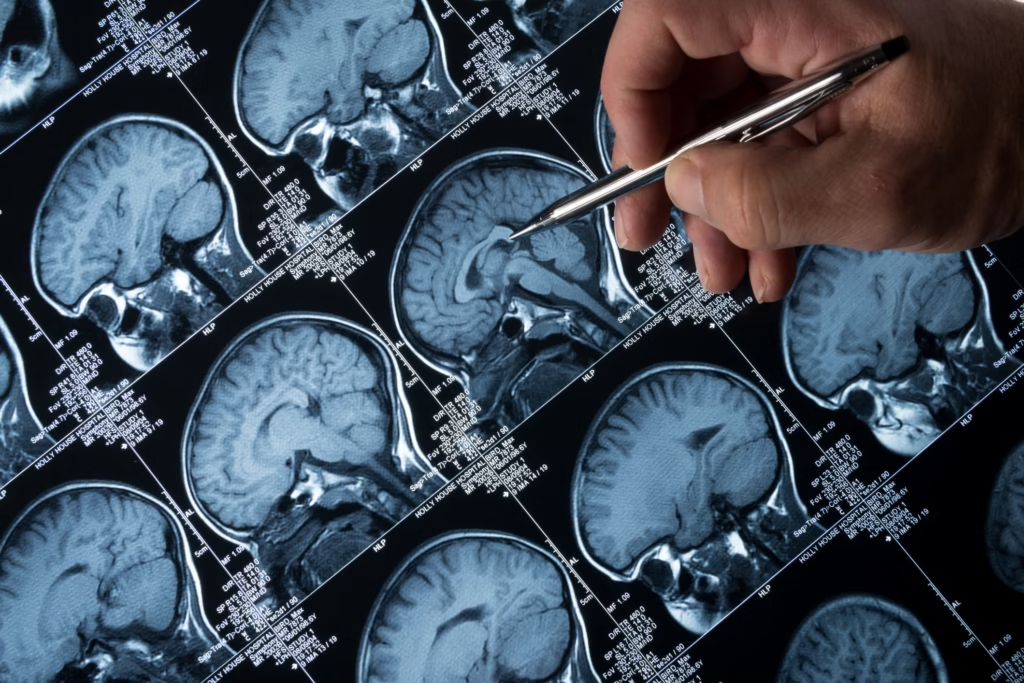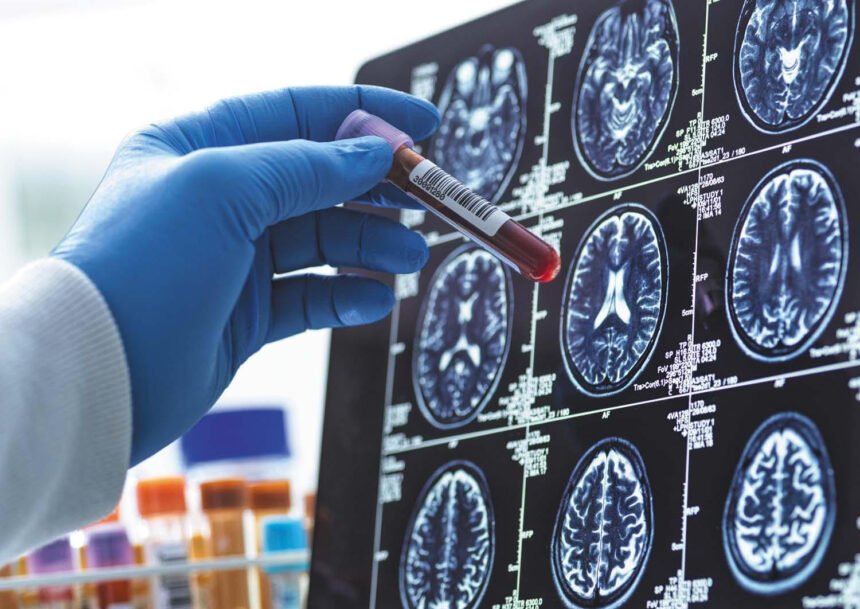Introduction
Early Alzheimer’s detection with biomarkers is revolutionizing the diagnosis and management of cognitive decline. In a recent preventive neurology study, adults at risk for Alzheimer’s demonstrated measurable improvements in blood markers of neurodegeneration after implementing personalized lifestyle changes. Traditionally, diagnosing Alzheimer’s required costly brain scans and invasive spinal taps, but blood-based biomarker testing now offers a less intrusive, more accessible way to identify the disease early. This approach enables clinicians to monitor progression in real-time and provides new hope for slowing or preventing cognitive decline.
Early Alzheimer’s Detection with Biomarkers: A Breakthrough in Testing
Alzheimer’s disease, a progressive neurodegenerative disorder, is notoriously difficult to detect in its early stages. Subtle cognitive changes, such as difficulty recalling words or minor memory lapses, often go unnoticed until significant brain damage occurs. Blood biomarkers now allow doctors to monitor key proteins associated with neurodegeneration—amyloid, tau, and markers of neuroinflammation—providing a window into the disease before major symptoms appear.
Recent studies, including the Biorepository Study for Neurodegenerative Diseases (BioRAND), have shown that participants who adhered to structured lifestyle interventions displayed marked improvements in these biomarkers, suggesting that early detection coupled with proactive measures can slow disease progression.

How Blood-Based Markers Are Transforming Diagnosis
Biomarkers measured in the blood offer an efficient alternative to traditional diagnostic methods. Amyloid plaques and tau protein tangles, hallmarks of Alzheimer’s pathology, can now be quantified through simple blood draws. Additionally, markers such as glial fibrillary acidic protein (GFAP) and neurofilament light chain (NfL) provide insights into inflammation and neuronal damage.
These tests are emerging as critical tools for clinicians, enabling them to detect subtle changes in brain health long before cognitive impairment becomes apparent. By monitoring these markers over time, medical teams can evaluate the effectiveness of interventions and personalize treatment plans for each patient. https://www.alz.org/alzheimers-dementia/research-and-progress/earlier-diagnosis
Personal Stories Highlight the Power of Intervention
Many participants in these studies report dramatic improvements in cognitive function alongside measurable changes in biomarkers. Penny Ashford, 61, for example, struggled with word retrieval and memory lapses after experiencing early signs of cognitive decline in her late 50s. Following a comprehensive lifestyle overhaul—including a Mediterranean diet, structured exercise, stress management, and tailored supplements—Ashford’s blood biomarkers reflected significant improvement.
Her p-tau 217 levels dropped by 43%, p-tau 181 by 75%, and markers of neuroinflammation decreased substantially. Clinically, she regained the ability to communicate effectively and felt a renewed sense of mental clarity. Stories like Ashford’s highlight the real-world impact of integrating biomarker monitoring with lifestyle interventions.
Measuring Amyloid, Tau, and Neuroinflammation
Understanding the specific biomarkers used in early Alzheimer’s detection is key to appreciating their significance. Amyloid plaques disrupt communication between neurons, tau tangles affect memory centers, and markers like GFAP and NfL indicate ongoing inflammation and neuronal degradation.
Advanced blood tests, including p-tau 217, p-tau 181, and the amyloid 42/40 ratio, provide precise quantification of these proteins. Research shows that combining multiple biomarkers increases diagnostic accuracy, sometimes reaching up to 90% in predicting Alzheimer’s-related cognitive decline.
Early Alzheimer’s Detection with Biomarkers and Lifestyle Change
While biomarkers offer insight into disease progression, the studies emphasize that proactive lifestyle measures can significantly alter outcomes. Participants who adhered to a structured program—focusing on diet, exercise, sleep, stress reduction, and metabolic optimization—showed the greatest improvements in biomarker profiles.
This combination of early detection and intervention underscores a shift toward preventive neurology. Instead of waiting for symptoms to manifest, patients can now take actionable steps informed by real-time biological data.
Comparing Blood Panels to Traditional Testing
Historically, Alzheimer’s diagnosis relied on PET scans or cerebrospinal fluid analysis, both expensive and invasive. Blood-based biomarkers, in contrast, require minimal resources, can be repeated over time, and provide a less intimidating option for patients.
Experts foresee a future where routine blood tests—akin to cholesterol screenings—become standard practice in assessing brain health. Such accessibility may revolutionize public health approaches to dementia prevention.
Tracking Risk Reduction Through Biomarker Shifts
Monitoring changes in biomarker levels allows clinicians to evaluate the effectiveness of preventive strategies. For instance, reductions in p-tau and neuroinflammatory markers correlate with improvements in cognitive function, providing tangible evidence that lifestyle modifications are making a difference.
This dynamic tracking empowers both patients and providers, fostering engagement and adherence to brain-healthy behaviors.

Early Alzheimer’s Detection with Biomarkers for Personalized Medicine and Long-Term Prevention
Every individual’s risk profile and response to interventions are unique. Personalized medicine, guided by blood biomarkers, enables tailored approaches. By understanding a patient’s specific biomarker profile, clinicians can recommend targeted strategies in nutrition, exercise, supplementation, and stress management.
The ongoing research suggests that this nuanced approach could slow, or in some cases prevent, the onset of Alzheimer’s disease, fundamentally changing how neurodegenerative conditions are addressed.
Challenges in Standardizing Biomarker Testing
Despite the promise, variability in testing platforms and interpretation of results presents challenges. Experts caution that while the technology is advancing rapidly, not all biomarker assays are equally validated.
Research teams are working to establish consensus standards to ensure consistency and reliability, allowing broader clinical adoption without compromising accuracy.
The Future of Early Alzheimer’s Detection with Biomarkers
The ultimate goal is to democratize access to biomarker testing, making it affordable and widely available. Experts envision routine blood panels administered starting in early adulthood, with periodic monitoring to track risk and progress over decades.




